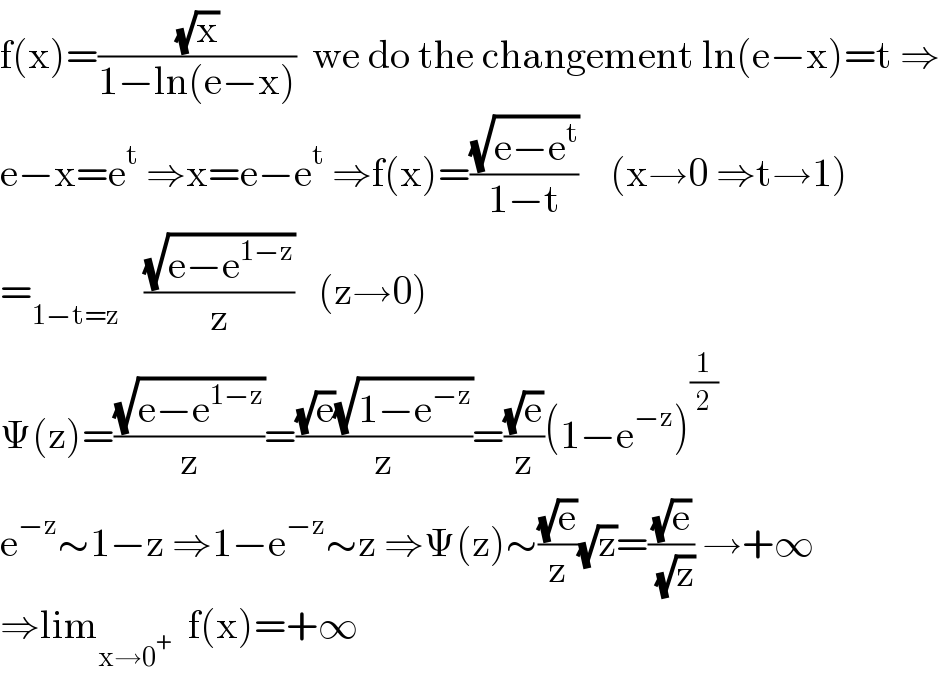
Question and Answers Forum
Question Number 162139 by LEKOUMA last updated on 27/Dec/21

Answered by alephzero last updated on 27/Dec/21

Answered by mathmax by abdo last updated on 27/Dec/21

| ||
Question and Answers Forum | ||
Question Number 162139 by LEKOUMA last updated on 27/Dec/21 | ||
 | ||
Answered by alephzero last updated on 27/Dec/21 | ||
 | ||
| ||
Answered by mathmax by abdo last updated on 27/Dec/21 | ||
 | ||
| ||